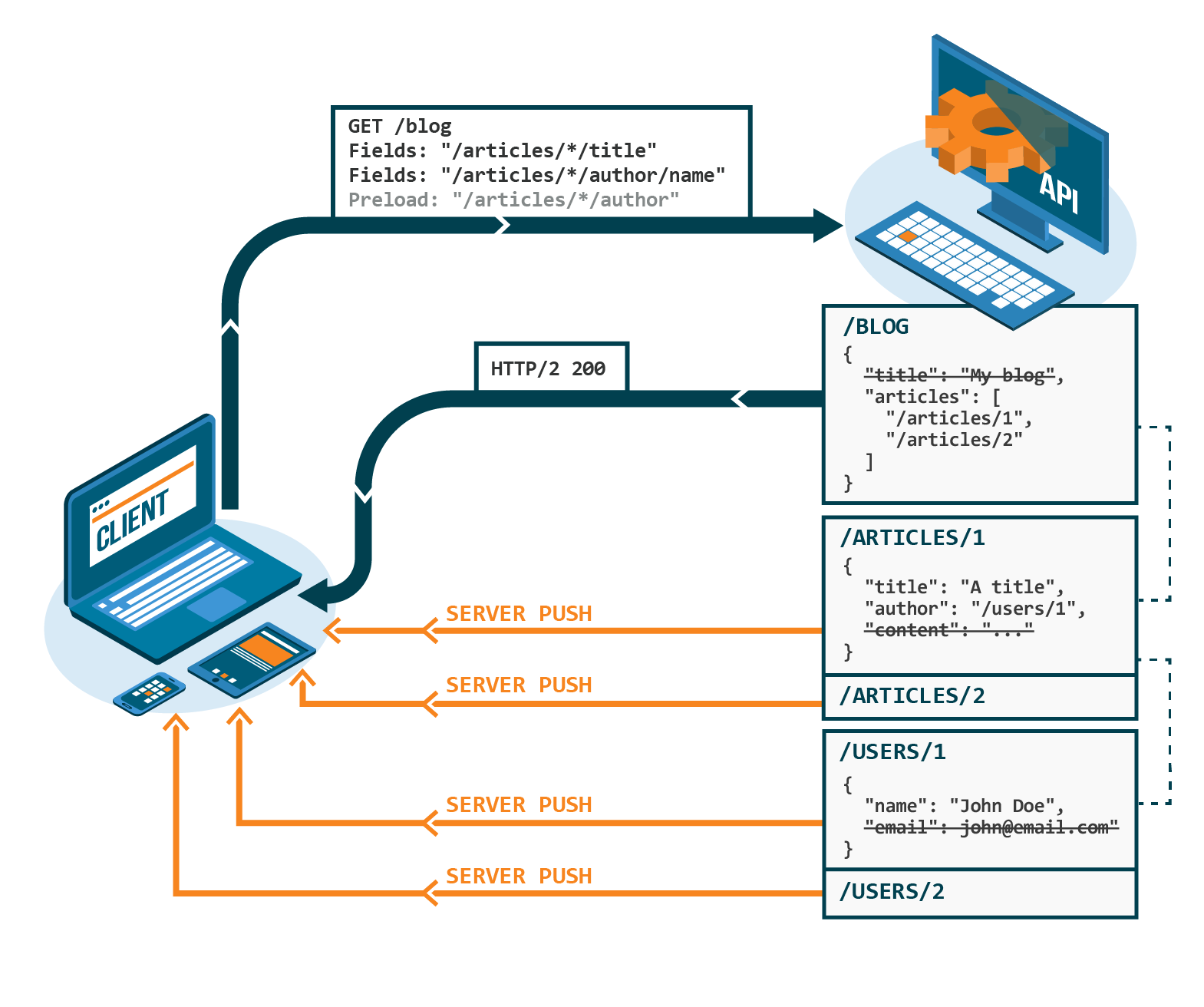“Structured Field Values for HTTP” is an upcoming RFC defining a set of well-defined data types to use in HTTP headers and trailers. This new format will improve the interoperability and the safety of HTTP by allowing to create generic parsers and serializers suitable for all HTTP headers (currently, most headers need a custom parser) and could also allow to improve the performance of the web. Mark Nottingham, one of the authors of this RFC, has published a very interesting article explaining these aspects in depth.
Headers and trailers using structured fields look like this:
Example-Item: token; param1=?0; param2="a-string"Example-List: token, "string", ?1; parameter, (42, 42.0)Example-Dict: foo1=bar, foo2="baz"; param, foo3=(?1 10.1)Custom HTTP headers (and trailers) can start using structured values right now and most upcoming web standards including the new security headers proposed by the Chrome team are embracing them.
The next version of Vulcain, a popular proposal specification of mine relying on HTTP/2 (and HTTP/3) Server Push to allow creating fast and idiomatic client-driven web APIs, will also leverage Structured Fields Values!

Problem: the reference implementation of Vulcain is written in Go… but until now Go had no parser for Structured Field Values. So I wrote one!
Here comes httpsfv, a Structured Field Values parser and serializer for the Go programming language! The library implements entirely the latest version of the Internet-Draft (19), is fully documented, is tested with the official test suite (and many additional test cases), is quite fast (benchmark included in the repository) and is free as in beer, and as in speech (BSD-3-Clause License)!
As the Structured Field Values spec will become a RFC soon and is planned to be used for most new HTTP headers, I also opened a Pull Request on the Go repository to include this parser (and serializer) directly in the standard library of the language. If this PR is merged, it will be possible to deal with SFV without requiring any third-party package.
This PR also provides convenient helper methods to parse and serialize structured headers directly from Header instances:
h := http.Header{}
// Parsing
i := h.GetItem("Foo-Item")
l := h.GetList("Foo-List")
d := h.GetDictionary("Foo-Dictionary")
// Serializing
d := sfv.NewDictionary()
d.Add("b", sfv.NewItem(false))
bar := sfv.NewItem(sfv.Token("bar"))
bar.Params.Add("baz", 42)
d.Add("a", bar)
h.SetStructured("My-Header", d)Examples and the documentation are available on the dedicated GitHub repository. Give it a try, and if you want to support this project, also give it a star!